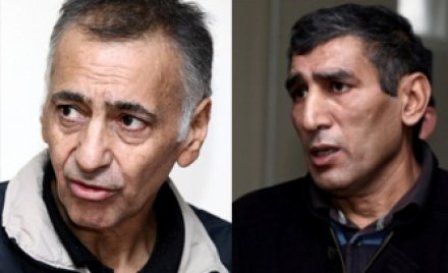Much work on Azerbaijani hostages

He said that the issue is raised in European organizations during the visits abroad in accordance with the president’s specific instructions.
During an operation in the Shaplar village of Azerbaijan’s occupied Kalbajar district on July 11, 2014 the Armenian forces killed an Azerbaijani, Hasan Hasanov, and detained two other Azerbaijanis, Shahbaz Guliyev and Dilgam Asgarov. A criminal case was filed against them.
Afterwards, the so-called court in Nagorno-Karabakh sentenced Asgarov to life imprisonment and Guliyev to 22 years in prison.
"I do not think that the Armenians will be able to keep the Azerbaijani hostages for a long time,” Asgarov said. “US Assistant Secretary for European and Eurasian Affairs Victoria Nuland has recently said in Baku, then in Yerevan and the US that the US is interested in the release of Azerbaijani hostages. However, we want these statements not only to be voiced, but also implemented in practice. The pressure must be exerted on Armenia.”
Asgarov said that one of the hostages is a citizen of Russia.
"I regret that Russia has not stood up for its citizen yet,” he said. “But a month ago, Russian Foreign Minister Sergey Lavrov said that actions would be taken. However, one month has passed and there are no results. We hope that the Russian state bodies will respect their Constitution, the laws on human rights and stand up for their citizen."
Armenia must return Azerbaijani hostages, Nuland said at a press conference in Baku earlier.
She said that this must be done as a humanitarian gesture.
She also said that the US is concerned about the recent aggravation of the situation on the contact line between Azerbaijani and Armenian troops.
"We want the violence to stop,” she said. “We want the sides to negotiate again. We want to support this process."
The conflict between the two South Caucasus countries began in 1988 when Armenia made territorial claims against Azerbaijan.
As a result of the ensuing war, in 1992 Armenian armed forces occupied 20 percent of Azerbaijan, including the Nagorno-Karabakh region and seven surrounding districts.
The two countries signed a ceasefire agreement in 1994. The co-chairs of the OSCE Minsk Group, Russia, France and the US are currently holding peace negotiations.
Armenia has not yet implemented four UN Security Council re














































